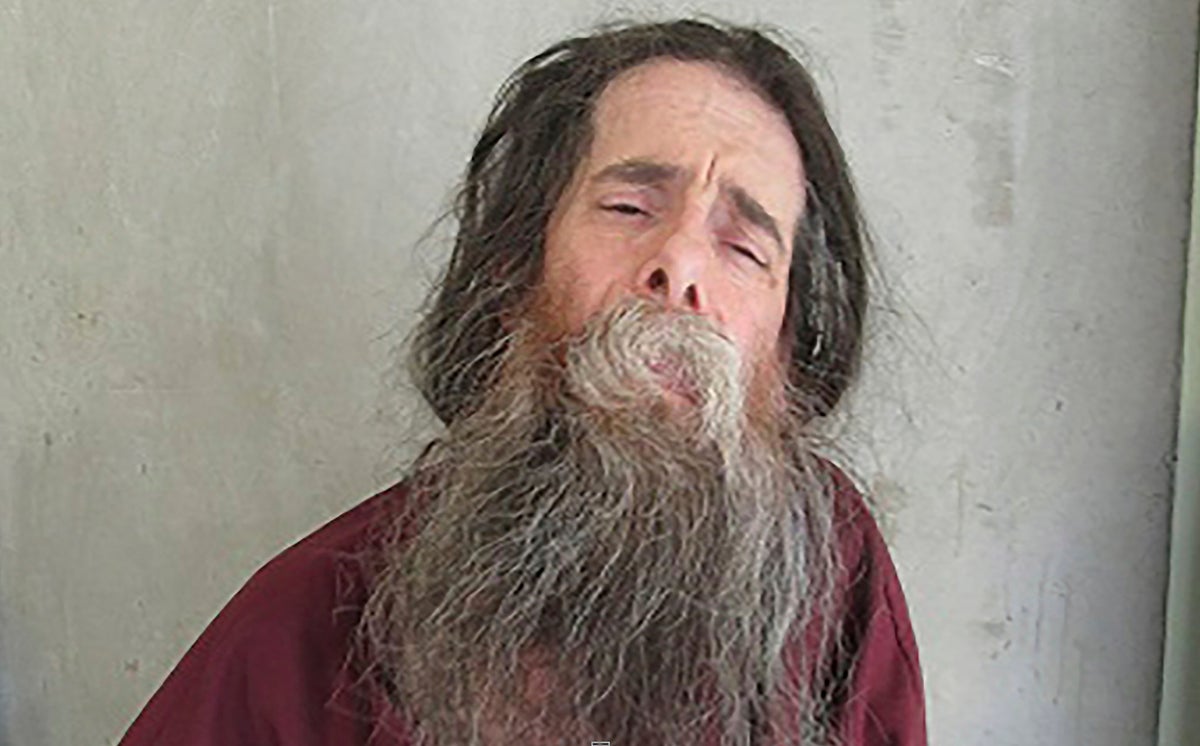
Oklahoma executed Benjamin Cole, 57, on Thursday, who was sentenced to death for the 2002 killing of his nine-month-old daughter Brianna.
A spokesperson for the Oklahoma Department of Corrections confirmed to reporters that the sentence had been carried out and that the “time of death was 10:22 a.m. (CT),” per CNN.
It’s the sixth killing in the state since Oklahoma restarted executions in October of 2021, following a string of botched and delayed death sentences, and legal challenges to Oklahoma’s lethal injection process accusing it of being inhumane and unreliable.
Cole killed the child by “forcibly bending the infant backward, breaking her spine and tearing her aorta,” according to the Associated Press.
On Wednesday, the US Supreme Court denied a last-minute appeal from Cole’s attorney to appeal his execution.
Opponents of capital punishment criticised Cole’s execution.
“We renew our call for an immediate moratorium on Oklahoma’s program of State-sponsored retribution, which does nothing to deter violent crime and continues to be riddled with errors, exonerations and controversy,” Oklahoma City’s Catholic archbishop Paul S Coakley said in a statement on Thursday.
Last month, Oklahoma’s pardon and parole board decided against recommending clemency for Cole, voting four to one against the reprieve petition.
Donna Daniel, Brianna’s aunt, told the board: “The first time I got to see Brianna in person was lying in a casket. Do you know how horrible it is to see a nine-month-old baby in a casket?”
Attorneys representing Cole had argued that he was severely mentally ill and had been diagnosed with both paranoid schizophrenia and a growing lesion on his brain.
The inmate had reportedly been refusing medical attention, ignoring his personal hygiene, hoarding food, could no longer walk, and lived in a near-catatonic state in a darkened cell with little contact with staff or fellow inmates.
His lawyers also said he was a victim of severe childhood physical, sexual, and verbal abuse, who began using drugs at age 10.
They attempted to argue to the parole board that, due to these reasons, he was unfit for execution.
In 1986, the Supreme Court held that executing the severly mentally ill is unconstitutional.
“It is no less abhorrent today than it has been for centuries to exact in penance the life of one whose mental illness prevents him from comprehending the reasons for the penalty or its implications,” wrote Justice Thurgood Marshall.
Since then, the debate has centered on precisely what constitutes severe mental illness, and when someone on death row is fit to be executed.
Attorney General John O’Connor released a statement in the wake of the board’s decision, saying he was“grateful that the Board denied Cole’s request for executive clemency,” according to Oklahoma local news.
“Our thoughts and prayers are with the other members of Brianna’s family. Brianna Victoria Cole was just nine months old when she was brutally murdered at the hands of her own father, Benjamin Cole, Sr., on December 20, 2002, when her cries interrupted Cole’s video game,” Mr O’Connor said, before getting into the horrific and brutal way in which Cole murdered Brianna.
Mr O’Connor also challenged the claims made by Cole’s attorneys: “His attorneys claim Cole is mentally ill to the point of catatonia, the fact is that Cole fully cooperated with a mental evaluation in July of this year. The evaluator, who was not hired by Cole or the State, found Cole to be competent to be executed and that ‘Mr. Cole does not currently evidence any substantial, overt signs of mental illness, intellectual impairment, and/or neurocognitive impairment.’”
In July, Cole spoke with a state psychologist at the Oklahoma Forensic Center in Vinita, The Oklahoman reports.
The psychologist, Scott Orth, reported that their conversation did now show Cole as someone suffering from clear mental illness.
Rather, he reported the Oklahoma inmate telling him, “They want to make sure I’m competent, and that I realize first that I killed my daughter, and I went through a trial for taking my daughter’s life and a jury found me guilty, they found me guilty of murder, and I was given the death penalty for that, and I accept responsibility for that.”
The weighty questions around the safety of Oklahoma’s death penalty system, and whether it should apply to mentally ill inmates, aren’t going anywhere in the coming months and years.
The state has three more executions scheduled this year and 23 total death sentences it plans to carry out before the end of 2024.
The Independent and the nonprofit Responsible Business Initiative for Justice (RBIJ) have launched a joint campaign calling for an end to the death penalty in the US. The RBIJ has attracted more than 150 well-known signatories to their Business Leaders Declaration Against the Death Penalty - with The Independent as the latest on the list. We join high-profile executives like Ariana Huffington, Facebook’s Sheryl Sandberg, and Virgin Group founder Sir Richard Branson as part of this initiative and are making a pledge to highlight the injustices of the death penalty in our coverage.







